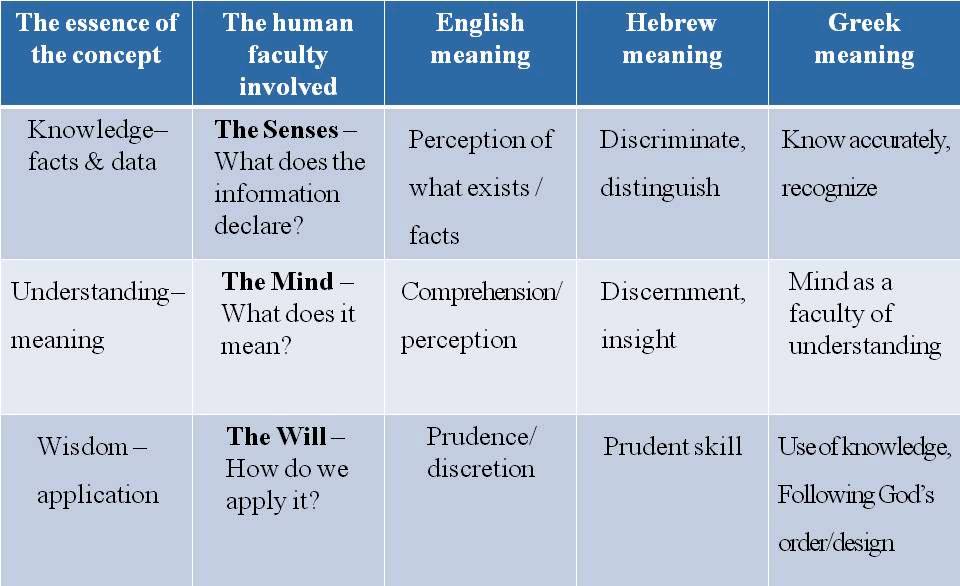In my first installment I pointed out that healthy societies are built only on the foundation of wisdom, and wisdom comes from God. God is the spring of wisdom, understanding, and knowledge. While the words are interrelated, they are not as we often assume, synonymous. In fact, they are hierarchal.
Knowledge is the collection of data and information; it answers the question What does the information reveal or declare? It is to perceive what is real. Many “smart” people function at the level of knowing, but stop there without adding understanding and wisdom.
Understanding is apprehending what is important. It comes from answering questions like, What does this knowledge mean? Is it important? If so, Why? Understanding relates the basic data and information to the larger whole of a comprehensive order. It judges correctly between truth and falsehood, goodness and evil, beauty and vulgarity.
Wisdom is the moral application of Truth. It is living within the order God has made and manifesting that order in one’s life. It answers the question, How do we apply what is true, good and beautiful? It is the application of sound judgment in relationship to reality.
The following chart may help us understand these three concepts from their linguistic roots:
 The most basic is the use of the senses to gather information, to collect facts. But what does one do with this knowledge? This perspective tends to be the outer limit of the “smart” person’s vision. We see today’s brilliant political officials with an impressive grasp of facts but seemingly unable to connect the dots about what these facts are telling us.
The most basic is the use of the senses to gather information, to collect facts. But what does one do with this knowledge? This perspective tends to be the outer limit of the “smart” person’s vision. We see today’s brilliant political officials with an impressive grasp of facts but seemingly unable to connect the dots about what these facts are telling us.
Understanding uses the mind to discover what is important and unimportant, what is significant and not significant, in the data. Understanding provides a context, a moral and metaphysical order to comprehend the meaning of the facts. British Prime Minister, David Cameron, exhibited understanding when he recently observed that the rioting in his nation stems from dysfunctional family life. Understanding answers the So what?question. Once you know what is important, what will you do with this understanding?
Of the three, the most important is wisdom. Wisdom is the goal of every virtuous life. Wisdom leads to right behavior. It uses the will to choose the moral good, the aesthetically beautiful, to do what is right and true. Wisdom is the moral application of truth. It means little to know facts unless you understand what those facts mean. It also means little to have understanding if it is not applied. This is the heart of wisdom: to do the good, to tell the truth, and to create beauty.
Today’s headlines exhibit, rather, what is folly: to do evil, to lie, to create the mundane and the hideous. It is folly to deny the existence of the Creator, to live in the sensual, to limit yourself to the gathering of data and information. In the West today, we are witnessing the complete madness of the fool!
Without wisdom, a society cannot thrive.
– Darrow Miller





